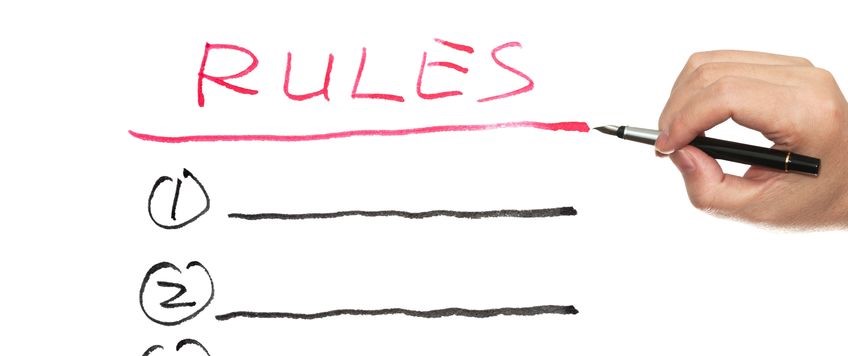Every workplace has to have rules or there would be chaos; however, the very best rules are the ones where the reasoning behind them is obvious.
By Steve Moran
One of my favorite business authors is Adam Grant, a professor at the Wharton School of the University of Pennsylvania. His first book, “Give and Take”, is a must read for anyone in business. I am currently about one third of the way through his second book, “Originals, How Nonconformists Move the World.”
Parents, Birth Order and Creativity
In one chapter he talks about how creatives can come from both authoritarian and loose family structures, though they’re more often from loose family structures. It turns out, though, that specifically within authoritarian families there are two very different approaches.
In stereotypical families where parents take the approach “my house, my rules” you have to do what I say because I say so. The kids who come out of those households tend to be be either very rigid or very rebellious and in both cases not particularly creative.
In some number of homes however, there were lots of rules that were rigidly enforced but accompanying those rules was a clear explanation about why the rules are important.
Important V. Unimportant Workplace Rules
Every workplace has to have rules or there would be chaos. Senior Housing Forum is about as ruleless as it gets because it is me and a group of amazing independent contractors on one side and a group of amazing sponsoring partners on the other side. We don’t have any kind of rule book or policy manual or even a list of procedures, and yet we do have some rules and operating principles:
-
Goal — Every article will help providers be better at what they do.
-
Publish at least one article every business day.
-
Articles need to be between 400 and 800 words long (though this is a little flexible in either direction).
-
We have to believe in the partners we work with.
-
Sponsored partner articles need to provide real substance for readers, even if they never buy anything.
-
We are transparent with each other, with our partners and with our readers.
-
We embrace criticism because it helps us grow.
-
If we read something someone else wrote and it doesn’t work, we tell them so we can make it better (and yes, from time to time my team has come to me and asked what I was smoking or drinking when I wrote an article paragraph or sentence).
I am sure there are a few more, but I can tell you why we do each one.
Problem Rules
There are 4 kinds of rules:
-
The very best rules are the ones where the reasoning behind them is obvious to anyone who reads them.
-
There are other rules that are really good and really important but the reasoning behind them may be less obvious. These rules can be explained easily.
-
There is a third category of rules that are imposed from the outside, that have to do with regulations and risk mitigation. Sometimes they make sense but often they are just the price of admission. They can really only be explained by saying . . . “They are stupid but the government makes us, or the insurance company makes us, or the lawyers make us . . ..” I would note that even here, if it is “The lawyers made us” you need to make sure they are not just stupid rules because some attorneys are over cautious.
-
The very worst are rules or policies that are written in response to a single or handful of “one-off” incidents. These are things that should be dealt with by educating or firing people not by writing a new policy or procedure. There are way too many of these floating around.
And the bigger the organization the more of them there are.
So here is my challenge to you: go look at your rule book and see if you can create a rational easy to understand explanation for your policies.








